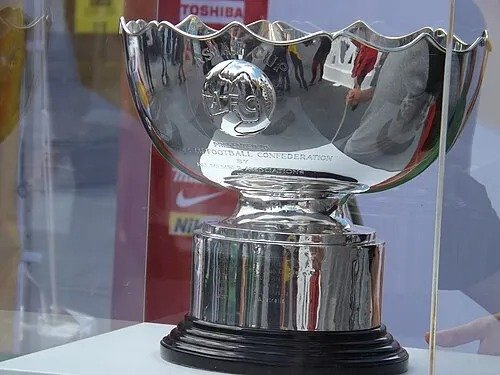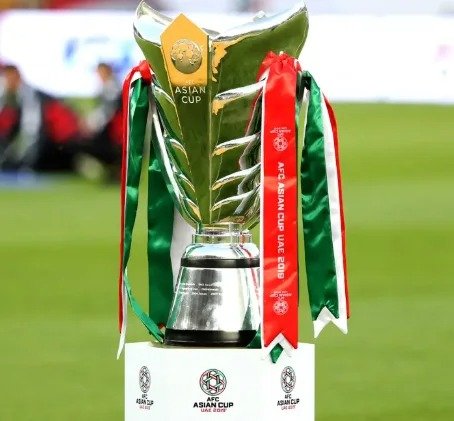
AFC Asian Cup Stats, List of Winners, and Forms of Qualification
The Asian Football Confederation (AFC) organizes the AFC Asian Cup, the biggest men’s football competition in Asia. It determines the continental champion and is the second-oldest continental football tournament after the Copa América. Over the years, AFC Asian Cup stats have highlighted the dominance of top Asian teams and the tournament’s rich history.
Since its inception in 1956, the competition has integrated Asia’s finest footballing nations every four years, forging indelible moments and rivalries in the process. The victor is awarded the title of the “Champions of Asia”. Until the 2015 edition, the champions also qualified for the FIFA Confederation Cup.
A Brief History of the AFC Asian Cup
The tournament was contested for the first time in Hong Kong in 1956 and held on a quadrennial basis. After the 2004 edition in China, the tournament’s timing was changed in order to not coincide with the Summer Olympics and the European Championship. This resulted in the 2007 tournament which was co-hosted by Indonesia, Malaysia, Thailand, and Vietnam.
Starting in 2017, the competition was further intensified when the number of participating teams increased from 16 to 24. The tournament’s inclusiveness, as well as the intensity, increased due to a higher number of teams and a more challenging qualification process.
Key AFC Asian Cup Stats and Records
- Most Games Played: Iran – 74 matches.
- Biggest Expansion: From 16 to 24 teams in 2019.
- Debut Teams Yet to Appear: Pakistan, Afghanistan, Laos, Macau, Guam, Northern Mariana Islands, Nepal, Bhutan, Sri Lanka, Maldives, Brunei, Timor-Leste, and Mongolia.
- No Third-Place Match Since: 2019; semi-final losers are ranked based on goal difference.
- Host Wins: Several nations have won when hosting, including Australia in 2015.
AFC Asian Cup Qualification Stats
The qualification process for the AFC Asian Cup is one of the most challenging in international football. It is now closely tied to FIFA World Cup qualification to make the process more efficient for national teams.
Format of the 2027 AFC Asian Cup Qualification
The 2027 AFC Asian Cup will be the 19th edition of the tournament, and Saudi Arabia will host it. The qualification involves four rounds:
- First Round
- 20 lowest-ranked teams (ranked 27–46 in Asia) play home-and-away matches.
- 10 winners advance to the second round.
- 3 best-ranked losers advance to the third round.
- Remaining 6 losers go to the play-off round.
- 20 lowest-ranked teams (ranked 27–46 in Asia) play home-and-away matches.
- Second Round
- 36 teams (top 26 ranked + 10 first-round winners) are split into 9 groups of 4.
- The top 2 from each group (winners and runners-up) qualify for the Asian Cup and move on to the next round of World Cup qualifiers.
- Remaining teams advance to the third round of Asian Cup qualification.
- 36 teams (top 26 ranked + 10 first-round winners) are split into 9 groups of 4.
- Play-Off Round
- 6 worst-ranked losers from the first round play for 3 spots in the third round.
- 6 worst-ranked losers from the first round play for 3 spots in the third round.
- Third Round
- 24 teams (3 best first-round losers + 18 from second round + 3 play-off winners) in 6 groups of 4.
- Group winners secure the last 6 slots for the Asian Cup.
- 24 teams (3 best first-round losers + 18 from second round + 3 play-off winners) in 6 groups of 4.
AFC Asian Cup Qualification: Notable Facts
The first two rounds are also double duty as 2026 FIFA World Cup qualifiers for Asian teams.
Eligible countries: 46 countries are eligible to participate according to FIFA affiliation. Northern Mariana Islands were expected to take part in the playoff but are not a FIFA member and did not participate.
Seeding: Teams are seeded using FIFA World Rankings, which ensures a balanced group.
Top Qualification Scorers: Almoez Ali of Qatar and Son Heung-min of South Korea are currently on top with 7 goals each (June 2025).
The Trophy – From Bowl to Lotus
The trophy for the AFC Asian Cup has undergone two major transformations:

Original Trophy (1956–2015):
Bowl shape with a circular base, 42 cm tall, 15 kg weight.
Black base with engraved plaques of winning nations.

Current Trophy (Since 2019):
Designed by London Silversmiths Thomas Lyte.
Lotus shape with five petals symbolizing the five AFC sub-confederations. 78 cm tall.
Handcrafted over 450 hours from sterling silver.
The trophy’s lotus design symbolizes unity across Asia while the base holds engravings of the names of previous champions.
Prize Money
There have been significant increases to the AFC’s franchise prize money over the years. In the AFC Cup (a club competition), the winners stand to gain US$2.1 million, while the US$500,000 for the runners-up is a sizeable prize for emerging clubs. The prize pool for the Asian Cup national teams is also increasing, which corresponds to the rise in the tournament’s prestige and the AFC’s revenues.
The Next Edition – 2027 AFC Asian Cup
The AFC Asian Cup will be hosted in Saudi Arabia from September 9 through 28, 2027, with matches taking place in Dubai and Abu Dhabi. Saudi Arabia promises an eclectic mix of Asian powerhouses includng Japan, Iran, and South Korea alongside advanced tech and rising football teams looking to cement their place in football history.
Why the AFC Asian Cup Matters
The AFC Asian Cup serves as more than a mere tournament, it is a proclamation of Qatar, Iraq’s emergence in global football and region’s cultural unity. Irag and Qatar use it as a scent to announce their presence to the global sporting narrative. For powerhouses like Japan and Iran, a chance to retain their dominance.
Over the last 70 years, the competition has been accompanied by spectacular football moments like the unanticipated extra time astonishment and of course with many underdog surprising runs.
Conclusion
The competition is gradually increasing in importance, the level of competition as well as the number of fans. Every football lover should be looking forward to the record breaking numbers of teams and champions, smack in the world of football history, it promises to never disappoint.
Be ready for new intense face-offs, unprecedented football in Asian history, and potentially a new champion in the competition as we drive over the 2027 AFC Asian Cup.
For more sports-related content, visit Prosportsio.com, where we dive deep into the world of football and beyond.



